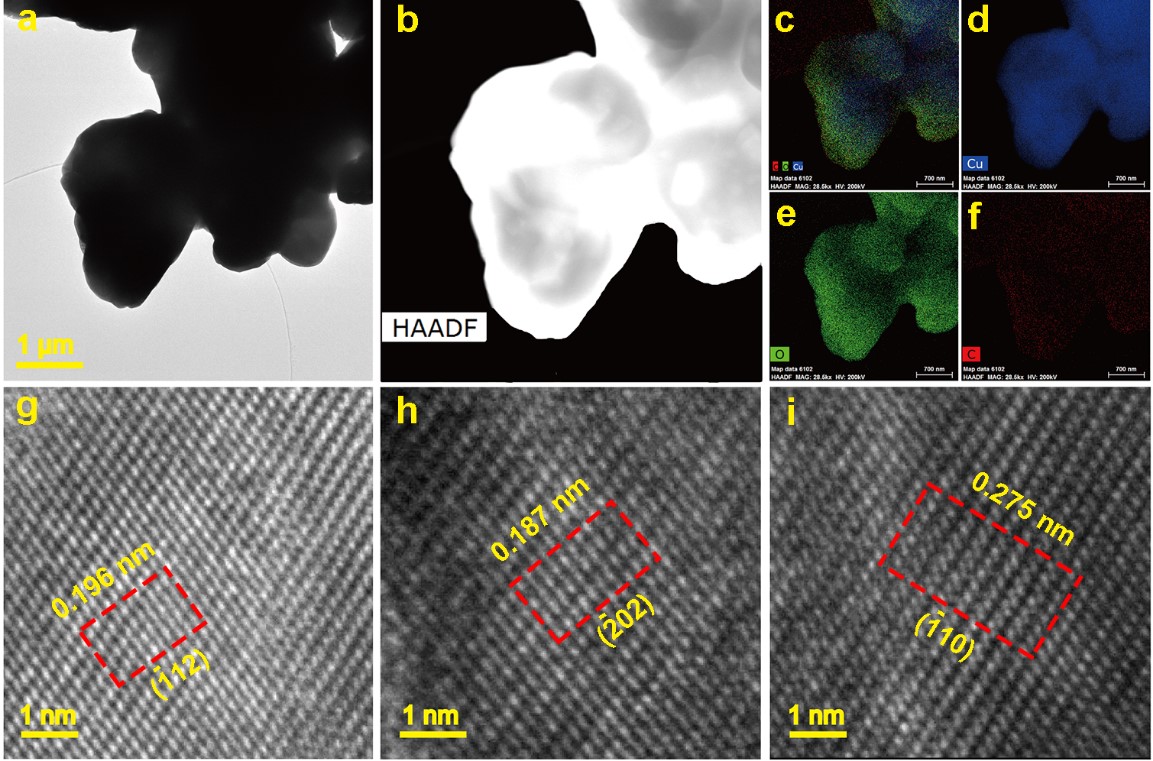
Recently, the research team led by prof. KONG Lingtao at Institute of Solid State Physics, Hefei Institutes of Physical Science developed a highly active carbon framework-encapsulated copper oxide Fenton-like catalyst that can generate free radicals and singlet oxygen by activating peroxymonosulfate (PMS), realizing the efficient degradation of tetracycline pollutants in water.
Tetracycline (TC) is a kind of universal antibiotics with a naphthacene structure, ranking second in the world in terms of production and use. Tetracycline cannot be completely absorbed by humans and animals. About 75% will be excreted in urine and feces in the form of mother or metabolite progeny, thereby polluting the environment and ultimately endangering human health and ecological safety. Due to the stable chemical structure and poor biodegradability of TC, it is difficult to remove by conventional techniques.
In this research, researchers prepared a carbon framework-encapsulated copper oxide particles (CuO@C-550) and used it as a heterogeneous Fenton-like catalyst to activate PMS to degrade TC.
The removal rate of TC (20 ppm) reached 99.8% in 40 min, and it performed well in a wide pH range (3-9), while the addition of multiple coexisting ions (Cl-、H2PO4-、HCO3-、NO3- ) had almost no effect on the degradation system.
After five cycles, the removal rate of TC was still greater than 85 %, and the loss of copper of the catalyst was slight, indicating good stability of the material.
"Quenching experiment and EPR test proved that CuO@C-550 activated PMS to produce active substances such as ·OH, SO4·-and 1O2,” said KONG Lingtao, “Besides, we speculated the reaction mechanism based on the effective cycle of Cu+/Cu2+/Cu3+."
Having successfully solved the problem of metal loss of conventional Fenton-like catalysts, this research breaks through the traditional Fenton reaction's limitation of pH and inorganic ion interference, and provides a new profile for the deep removal of refractory organic pollutants in water.
The above work is supported by the National Key Research and Development Program, the National Natural Science Foundation of China, and the Anhui Provincial Major Science and Technology Project.
Link to the paper: Carbon framework-encapsulated copper oxide particles to activate peroxymonosulfate for the efficient degradation of tetracycline

Fig. 1. (a) TEM image (b - f) Mapping images (g - i) HR-TEM images of CuO@C-550. (Image by YANG Dandan)
Contact:
ZHAO Weiwei
Hefei Institutes of Physical Science (http://english.hf.cas.cn/)
Email: annyzhao@ipp.ac.cn